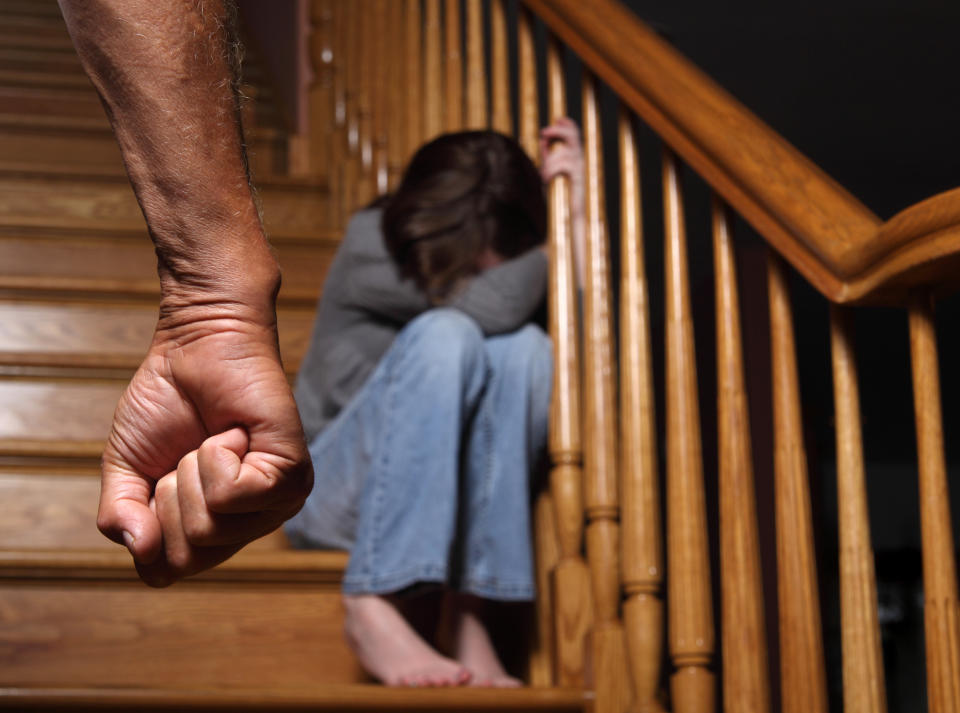Your child might be facing sexual abuse: Help is at hand
According to a Study on Child Abuse conducted by the Ministry of Women and Child Development: *
53.22% of children reported having faced sexual abuse of which 21.9% faced severe forms of sexual abuse.
From amongst them, 52.94% were boys and 47.06% girls.
70% of abusers are immediate family members and close acquaintance.
Trained volunteers at Viveka, a Not-for-Profit organisation, dedicated to promoting and sustaining a mentally and emotionally healthy society, outline the ideal ways to approach the subject of Child Sexual Abuse and the related doubts.
Survivors of Child Sexual Abuse (CSA) tend to face psychological, behavioural and social difficulties. Higher levels of depression, guilt, eating disorders, somatic concerns, dissociative phenomenon and other psychiatric ailments such as post-traumatic stress disorder have been documented .

1) Most interventions to protect CSA are focused on teaching children good touch, bad touch. Although a well-intended approach, it strongly suggests that using this knowledge a child can protect oneself. Unfortunately, it’s a proven fact that most offenders personally know the children! Sexual abuse by someone that a child trusts, believes and more importantly loves can impact their sense of being, self worth, and self-esteem. They feel guilty and blame themselves for what’s happened to them.
2) Culturally parents, grandparents, caregivers implicitly give permission to other adults to hug, kiss or touch children. Simultaneously, children too are often forced into such acts. It’s considered socially acceptable and any deviation is termed as rude behaviour. Instead of forcing children, it’s important to teach them to trust their feelings and give them the confidence to say ‘no’ if they feel uncomfortable when someone they know, does something they do not like.
3) Children should be taught (in an age appropriate manner) anatomically proper names of private body parts. When names are left out then it’s an indirect message to the child that they cannot talk about those parts. Proper terminology makes children less vulnerable. Prospective offenders fear this
comfort level as it means that their parents willingly and openly talk about it and have spoken to them about inappropriate touching. Alternatively, it gives them the right words to use and share if something untoward does happen. It helps them develop a healthy and more positive body image.
4) Everyone has a basic need to be heard. When children confide the initial reaction of most adults is disbelief and in some cases they feel that the child is lying. Children view their world as governed by adult rules and expectations and fulfilling them is their way to feel safe, loved, cared for and accepted. Where CSA entails violence and coercion, children merely report hurt and injury and associated feelings of fear. They’re unlikely to see the act as being exploitative and abusive. It’s important that significant adults in the child’s life listen attentively, believe them and be sympathetic and helpful.
5) Children have the emotional need to feel respected as individuals and it’s important to set clear boundaries for them. To feel respected, they need to be treated in a courteous, thoughtful, attentive and civil manner. When they’re not treated with respect, it lowers their self-esteem, and makes them feel unimportant and insecure. In turn, they’re unable to voice the abuse feeling they deserved it and will get further punished if they do.
6) It’s crucial that parents, teachers, caregivers, people in authority be sensitised about their role when children confide in them. Inability to handle the situation, denying the abuse or disbelieving the children can be attributed to their own fears, confusions, and discomfort around the issue especially when it is by a known person or family member/caregiver. Their own survival and self-preservation within the family, and society, feelings of shame and embarrassment make them unresponsive to the child.
7) As much as the survivor of CSA needs psychological help, support and counselling, even parents, family and caregivers need help to deal with the situation and it’s repercussions. Often a second level of abuse happens and children are revictimised when they’re unable to process their own feelings of guilt, blame and inability to protect the child. Parents can blame each other which in turn impacts the child who feels responsible for creating this upheaval. India is home to the largest child population in the world and almost 42% of its total population is under 18 years of age. Protecting children from sexual abuse is an adult issue and calls for unanimous support towards their emotional and physical well being.
Inputs:
* Behere P B, Sathyanarayana Rao T S, Mulmule AN. Sexual abuse in women with special reference to children: Barriers, boundaries and beyond. Indian Journal of Psychiatry 2013
** Sheila Ramaswamy, Shekhar Seshadri. Our failure to protect sexually abused children: Where is our ‘willing suspension of disbelief?’ Indian Journal of Psychiatry 2017
*** Deborah and Jerry Newmark. The Children's Project: How to Raise Emotionally
Healthy Children
The Viveka Centre for Emotional Support is there to help individuals suffering from suicidal tendencies. For more information you can reach experts at http://www.vivekatrust.org/

 Yahoo Movies
Yahoo Movies 
